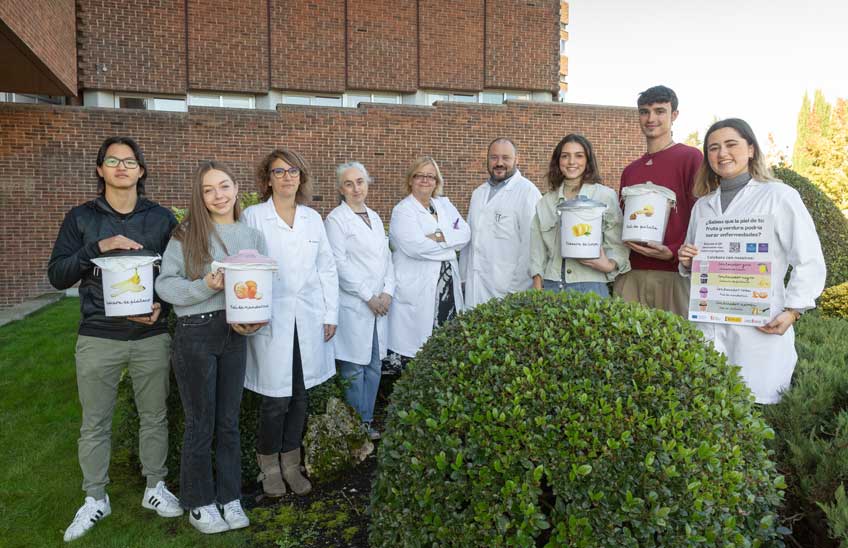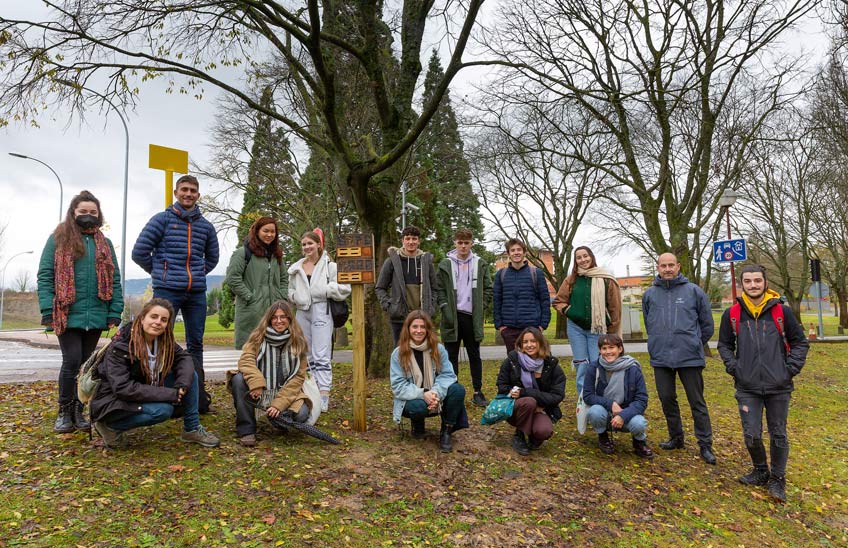Dragonflies and damselflies to be studied at the University of Navarra
A research determines the importance of odonates as indicators of climate change in freshwater ecosystems.

FotoCedida<br>/El investigador Tommaso Cancellario
24 | 03 | 2022
Dragonflies and damselflies (Odonata) are an order of insects - the larvae live in freshwater habitats and the adults are flying - that have been used to study climate change, due to the sensitivity of these species to temperature changes. This has been the basis of the research carried out at the University of Navarra by Tommaso Cancellario (Italy, 32 years old), under the direction of Dr. Rafael Miranda and Dr. Enrique Baquero.
Cancellario has studied the odonates (especially larvae) in the collection of the Science Museum of the University of Navarra, as well as the effects that climate change has on the populations of European odonates (adults). The main conclusion of this work is that in Mediterranean areas the issue species will progressively decrease due to the effects produced by temperature changes.
The methodology employed by the doctor has been the massive analysis of data of biodiversity and environmental variables, applying species distribution models, in order to analyse current and future scenarios in relation to climate change.
For researcher programs of study on the distribution of organisms is fundamental in ecology work: "Knowing how their spatial distribution could evolve over time, we can find out which species are most endangered and thus establish protection measures to try to prevent their extinction.
On the other hand, the work of this researcher has served to disseminate information on the distribution of the larvae of Spanish odonate species and to share this knowledge in the Global Biodiversity Information Facility (GBIF).
Cancellario notes that freshwater ecosystems play a fundamental role for life on Earth as they "support more than 10% of all known life forms and provide essential ecosystem products and services for human well-being".
For Cancellario, freshwater biodiversity is suffering a significant decline due to multiple factors such as the introduction of exotic species, habitat degradation, overexploitation, eutrophication, flow modification, the presence of microplastics in the aquatic environment, or the increase in the Earth's temperature. "There is an urgent need to bring together scientists, governments, local communities and business interests to promote and improve the safeguarding of freshwater in the current geological era known as the Anthropocene".
Tommaso Cancellario is graduate in Technological Sciences for the Territory and Productive System and Master's Degree in Environmental Sciences and Technologies from the University of Parma (Italy) and has developed his research at department of Environmental Biology of the School of Sciences of the University of Navarra.
Bibliographical references
→ Escribano, N., Oscoz, J., Galicia, D., Cancellario, T., Durán, C., Navarro, P., & Ariño, A. H. (2018). Freshwater macroinvertebrate samples from a water quality monitoring network in the Iberian Peninsula. Scientific data, 5(1), 1-6.




